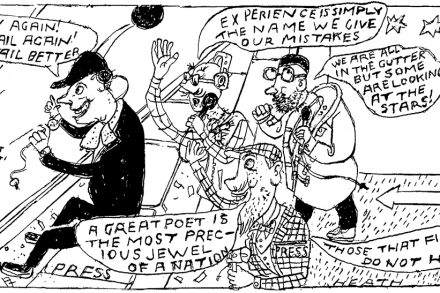Bernard Cornwell: ‘I don’t believe in writer’s block’
They say never meet your heroes, but Bernard Cornwell didn’t disappoint. Knowing I’m a superfan, the events team at The Spectator asked me to interview him on stage on Monday and he was everything you could hope for: funny, candid, clever. The default register of very successful people in my experience is insincere modesty, but Cornwell was something different – falsely immodest. That is to say, there were moments when he blew his own trumpet, but in a way clearly intended to be ironic. The lasting impression was of someone completely at ease with his achievements – not puffed up, but justifiably proud. Few authors can match Cornwell’s accomplishments. He
















